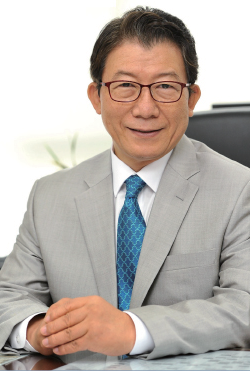

The Bitcoin has become a major
buzzword around the world.
When it first became into existence in January 2009, its price
was nearly at zero. In February 2010, the
value of one Bitcoin became one dollar as
it took parity with the US dollar. After
much fluctuation, it shot up to $1,290 per
unit on Mar. 2, 2017. Since then, it has
been rising rapidly, reaching $6180 on
Oct. 21, 2017. Over the January 2009 to
October 2017 period, the price of the
Bitcoin has increased by more than 6,000
times.
In this situation many people may be
tempted to invest in the Bitcoin but foreign investors cannot come to Korea for
Bitcoin investment. According to Korea’s
Foreign Investment Promotion Act, the
means of payment for investment in
Korea are confined to foreign currencies,
capital goods, industrial property rights
and real estate, among others.
It is useful to distinguish among virtual
currency, digital currency and cryptocurrency. Virtual currency is a type of unregulated, digital money which is issued and
usually controlled by its creators and
accepted among the members of a specific virtual community. Digital currency is
a form of virtual currency that is electronically created and stored. Some types of
digital currencies are
cryptocurrencies,
but not all of them are. A cryptocurrency
is a subset of digital currencies that uses
cryptography for security so that it is
extremely difficult to counterfeit.
Bitcoin is a cryptocurrency—a digital
asset designed to work as a medium of
exchange that uses cryptography to control its creation and management, rather
than relying on central authorities.
Besides Bitcoin, there are other cryptocurrencies and their market capitalization shares are 20 percent for Ethereum,
7.5 percent for Ripple and 2.4 percent for
Litecoin. Among these, the Bitcoin takes
the lion’s share with 40 percent.
Regarding the skyrocketing price of
Bitcoins, the central authorities are concerned about an increasing probability of
speculative bubbles, thereby putting a lot
of ordinary investors in a deep trouble.
Many commercial banks like UBS say
that a sharp rise in cryptocurrency valuations will lead to a speculative bubble and
cryptocurrencies are unlikely to become
mainstream currency.
By contrast, speculators are very interested in capturing high profits. There are
key differences between investment and
speculation. Investors expect profit from
the change in the value of the asset,
whereas speculators expect profit from
the change in the price due to changes in
demand and supply. If the speculative
demand falls sharply, the price bubble
bursts.
Investors tend to keep the asset for a
longer time period, whereas speculators
hold assets for a short term. An investor
expects a modest rate of return, whereas a
speculator expects higher profits.
Becoming an investor or speculator
depends on the investor’s attitude toward
risk. There are three types of investors—risk loving, risk averting and risk neutral.
So an investor with a risk-loving attitude
is likely to be a speculator.
Bitcoin investment will exert different
influences on the individual investor and
on the overall economy. The individual
investor aims at capturing the maximum
profit from the market. But the central
authorities and commercial banks worry
about a financial crisis occurring when
the cryptocurrency system suddenly collapses.
From the standpoint of the monetary
authorities, however, Bitcoin or other
cryptocurrency is a disturbing factor in
the maintenance of a stable economy. If a
large proportion of people engage in the
speculative transaction of the Bitcoin and
become victims of the bubble, the entire
economy will be jeopardized.
In connection with the means of payment for investment in Korea, foreign
investors cannot use the Bitcoin or other
cryptocurrencies. Due to reasons stated
above, it will take a while before the foreigners will be allowed to use the Bitcoin
as a means of payment for their foreign
investment.
The Foreign Investment Ombudsman and his grievance resolution body collect and analyze information concerning problems facing foreign firms, request cooperation from relevant government agencies, propose new policies investment promotion system and carry out other necessary tasks to assist foreign-invested companies in resolving their grievances.